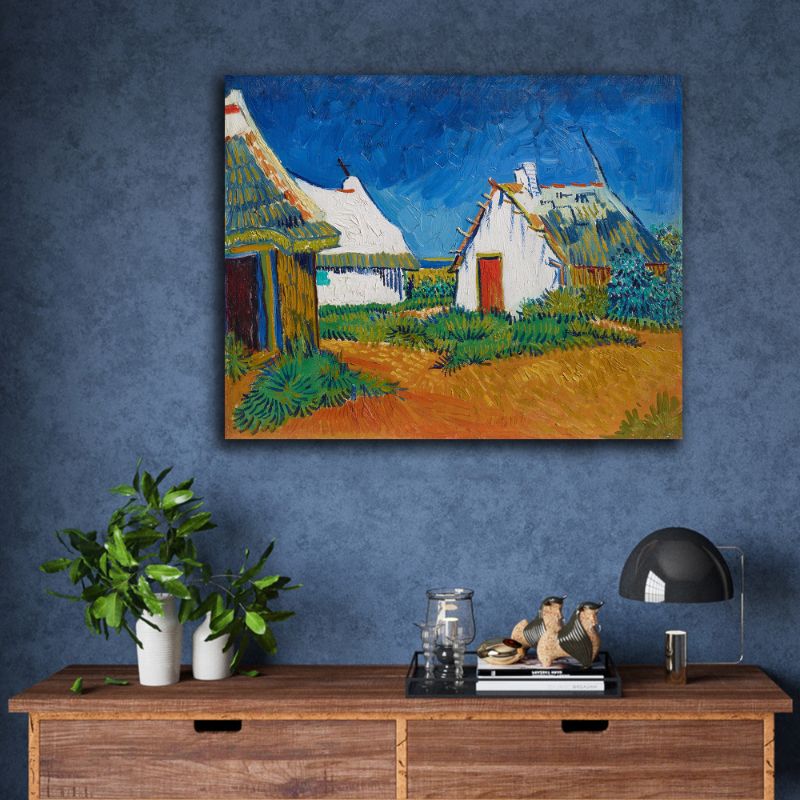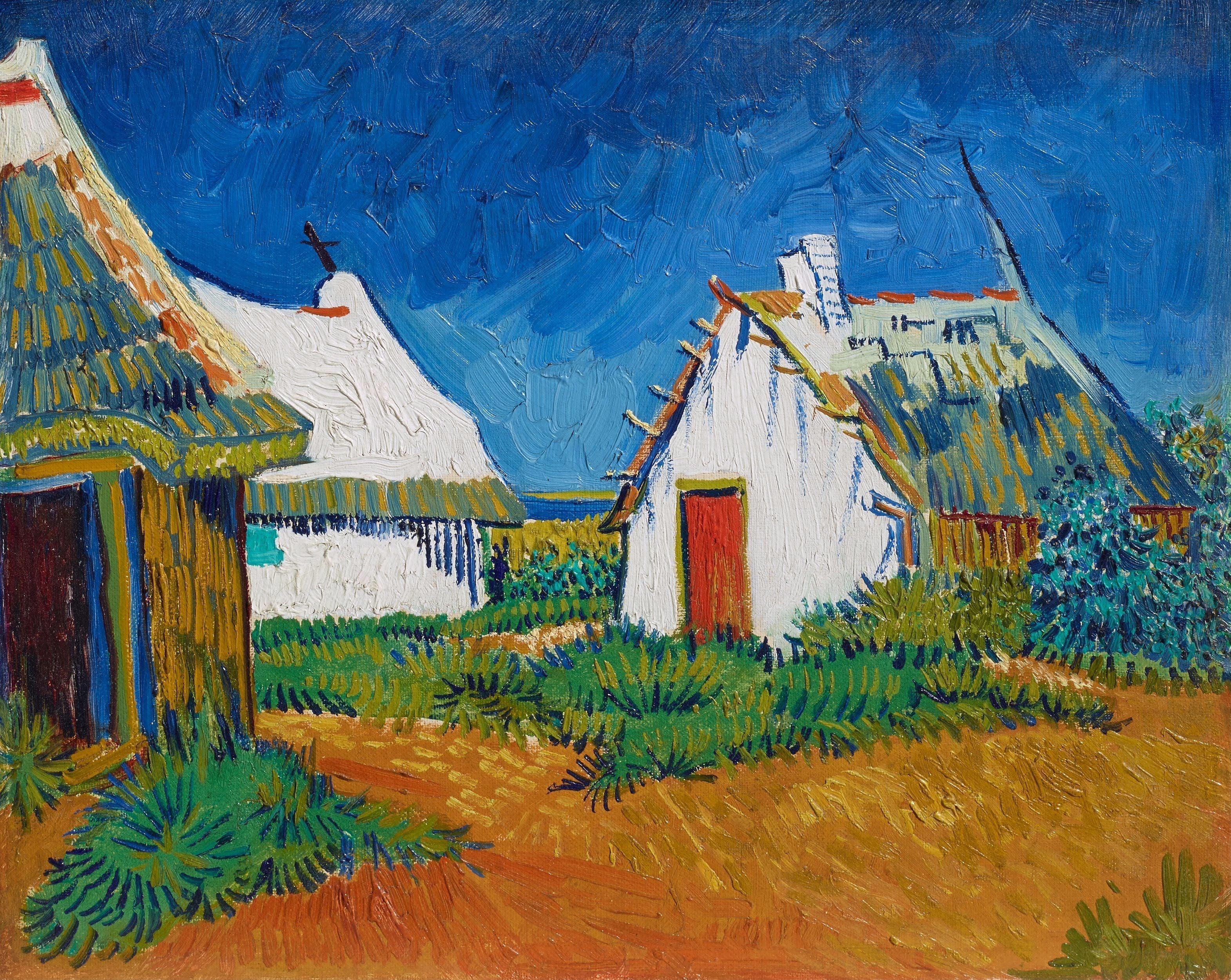Description
The painting "Three White Cottages at Saintes-Maries" by Vincent Van Gogh is a masterpiece of post-impressionist impressionism. This work was created in 1888, during the artist's stay in the coastal town of Saintes Maries, in the south of France.
The composition of the painting is very interesting, as Van Gogh uses a unique perspective to show the three white cottages in the foreground, while the sea and sky stretch out behind them. The artist also uses a loose, vibrant brushstroke technique to create a sense of movement and energy in the painting.
Color is another outstanding aspect of this work. Van Gogh uses a bright, saturated color palette to depict the coastal landscape. The blue and green tones of the sea and the sky contrast with the warm tones of the cabins and the sand.
The story behind this painting is also fascinating. Van Gogh was fascinated by gypsy culture and was drawn to Saintes Maries, a town known for its gypsy community. During his time there, Van Gogh painted several works inspired by gypsy culture, including this painting of the white huts.
Also, there is a little-known aspect of this painting that is interesting to mention. In the lower right corner of the painting, Van Gogh included a small human figure. This figure is a local fisherman that Van Gogh met during his stay in Saintes Maries. The inclusion of this figure shows the artist's connection to the local community and his interest in depicting daily life in his works.
In short, "Three White Cottages at Saintes-Maries" is an impressive work that stands out for its composition, color and the story behind it. This painting is a perfect example of Van Gogh's artistic style and his ability to capture the beauty and energy of nature in his works.






